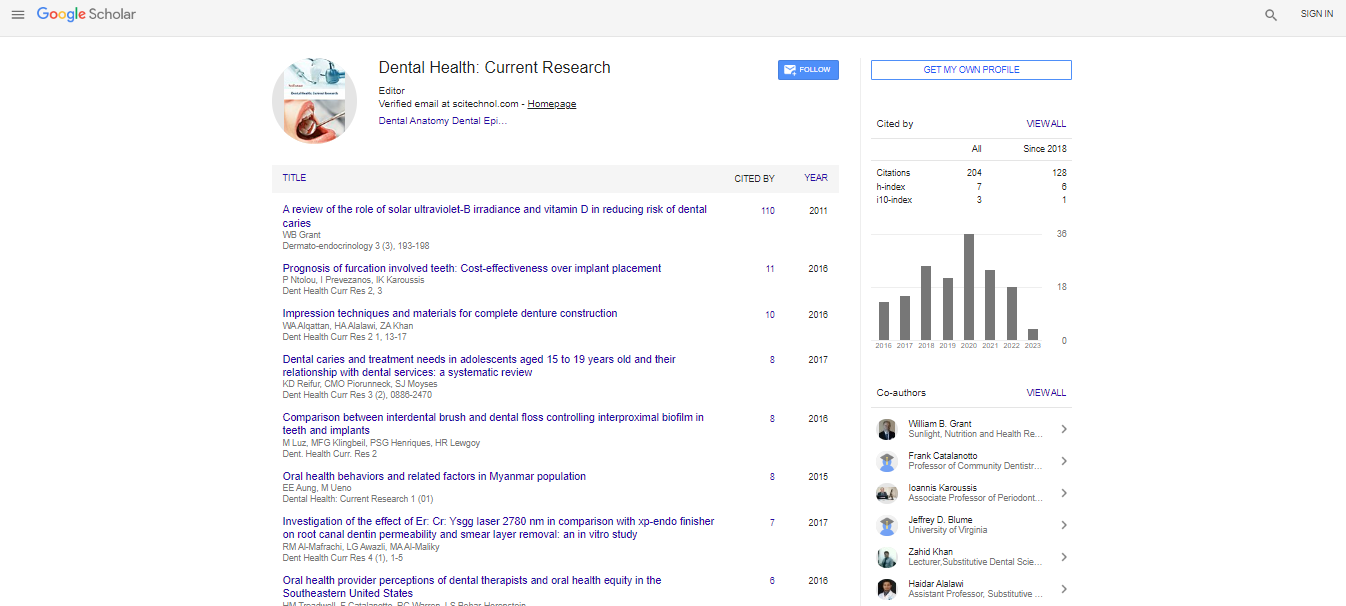Diagnosis and management of sialolithiasis; optimising patient pathways for the general dental practitioner
Simrath Singh Mangat, Rafal Niziol and Francine Ryba
King’s College London, UK
: Dent Health Curr Res
Abstract
The prevalence of sialolithiasis in the UK population has been estimated to be 0.45%, accounting for 50% of all salivary gland disorders. Previously, this would have been treated with gland excision. However, this has recently been superseded with minimally invasive treatment options. The presentation of sialolithiasis can be subtle and varied ranging from simple obstructive symptoms to sialadenosis. Often the first signs/symptoms of these can lead to attendance to a general dental practitioner for advice. At the King's College London Oral and Maxillofacial Surgery department, we often receive referrals for management of such cases and the patient has not been appropriately counseled on the current non-operative symptomatic relief management strategies. It is important for the general dental practitioner to have a clear understanding of the pathophysiology of salivary gland obstructive diseases and their associated symptomatic and clinical presentations. A discussion with the patient prior to referral of secondary care regarding the differential diagnoses and the likely investigations and the management options would enhance the patient’s understanding, expectations and overall experience. Symptomatic relief between referral and secondary care consultation can enhance the pathway. A patient who has had simple conservative management instigated, prior to attending the consultation in secondary care, can potentially result in expedited treatment in hospital. We have reviewed the existing literature and aim to provide a strategy on clinical decision making for general dental practitioners faced with salivary gland disorders in practice. They will be able to provide initial therapy, formulate differential diagnoses and make prompt referrals to secondary care where appropriate. This should improve the patient experience and patient pathway to ensure effective management.
Biography
Simrath Singh Mangat is a Member of the Oral and Maxillofacial Surgery team at King’s College Hospital, Denmark Hill. As a qualified dentist with a background in general practice and a Master’s in Pharmacy, he is well versed in the pharmacological effects of medications which can be a causative in salivary gland disorders. His history in dental practice makes him well suited to understand the complexities of primary care, whilst his experience in the OMFS department allows him to appreciate the entire patient and clinician journey. In this presentation he is supported by Dr Rafal Niziol, a dual-qualified OMFS Registrar and Ms. Ryba, a consultant in Oral and Maxillofacial surgery, with a keen interest in management of salivary gland disorders.
E-mail: Simrath.mangat@nhs.net
 Spanish
Spanish  Chinese
Chinese  Russian
Russian  German
German  French
French  Japanese
Japanese  Portuguese
Portuguese  Hindi
Hindi 